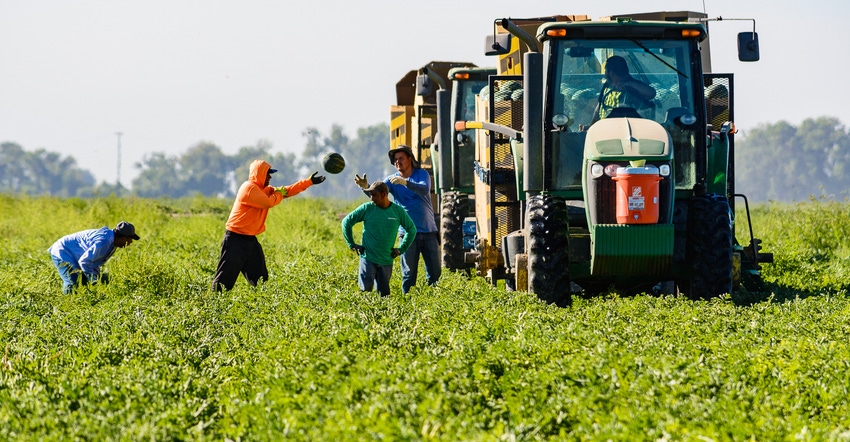California law challenged that forces businesses to allow unions on their property.

The U.S. Supreme Court will hear a challenge to a California law that allows employee unions to trespass on private property. California law requires agricultural producers to open their property and businesses to union activists, which the legal case claims disrupts their business operations and takes their property without compensation.
Early one morning in 2015, hundreds of workers at Cedar Point Nursery were startled when union activists came into their place of business, yelling into bullhorns and demanding that the workers join the union. Mike Fahner, owner of Cedar Point, decided to challenge the state law because it forced him to host the union’s activities.
The case is important for California growers and the nation’s consumers. Union intrusions on private property hamper production, especially if they occur in the midst of a busy harvest season. By harming the growers, the regulation also hurts consumers, who are saddled with the resulting increase in prices, representatives from Pacific Legal Foundation noted.
Even though property owners have a right to exclude trespassers, the state’s Union Access Regulation takes an easement that allows these union organizers to enter a business’s private property three hours a day, 120 days a year. For three days straight, United Farm Workers (UFW) organizers tried to storm Fresno, Cal.-based Fowler Packing Co., one of the nation’s largest growers of table grapes and citrus.
The company refused the union’s access, saying its 2,500 employees and their families already enjoy workplace perks typically promised by labor unions, including safe and immaculate facilities, free health care with an on-site health clinic and free meals any time of the day at an on-site cafeteria.
The Fourth Amendment guarantees the right to freedom from unreasonable searches and seizures, while the Fifth Amendment prevents the government from depriving property owners of the right to exclude trespassers from their property without just compensation. The board regulation gives union organizers the right to access private property for the purposes of soliciting support and, thus, authorizes a seizure and taking of possessory interests in private property, including the right to exclude others.
“The Constitution forbids government from requiring you to allow unwanted strangers onto your property, and union activists are no exception,” said Joshua Thompson, a senior attorney at Pacific Legal Foundation, which asked the high court to hear the case. “California’s regulation that allows them to do so violates property owners’ fundamental right to exclude trespassers.”
The American Farm Bureau Federation filed an amicus brief that noted, “If the panel’s decision is allowed to stand, agricultural employers — and property owners generally — can expect to see a dramatic increase in government-imposed easements authorizing third parties to engage in substantial ‘time-limited’ occupation and use of their properties.”
Statistics from the U.S. Department of Commerce and the Bureau of Economic Analysis evaluating total full-time and part-time employment on farms estimates that there are approximately 1.35 million farmworkers in the U.S. Farm Bureau members employ many of these farmworkers.
“The regulation challenged in this case purports to impose an access easement on agricultural businesses for the benefit of union activists. Such regulations threaten [Farm Bureau] members’ efforts to safeguard their workplaces against unauthorized intrusions,” the Farm Bureau brief noted.
Pacific Legal Foundation is representing Cedar Point Nursery and Fowler Packing Co. free of charge in the case Cedar Point Nursery vs. Hassid.
About the Author(s)
You May Also Like




.png?width=300&auto=webp&quality=80&disable=upscale)
